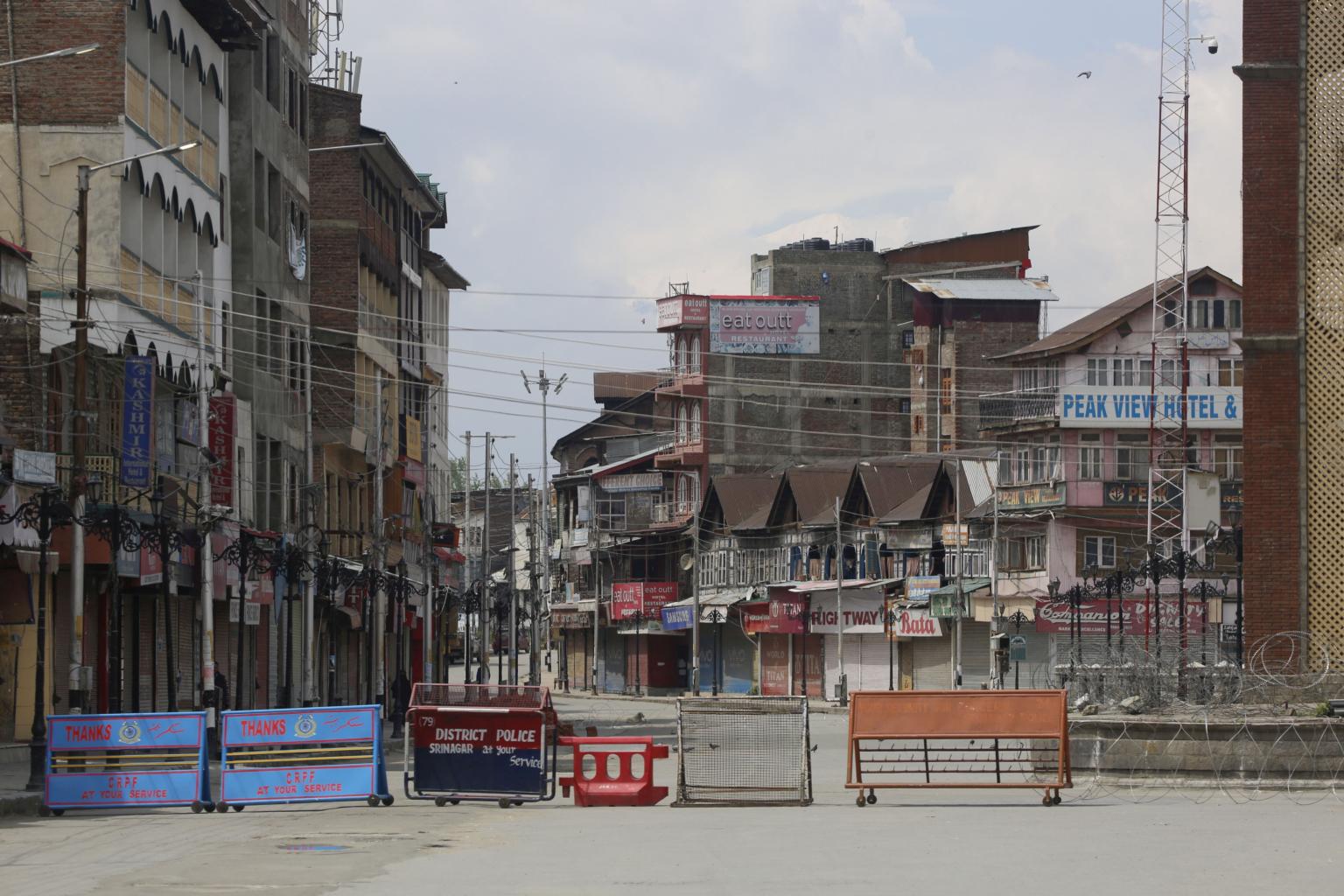India-Pakistan rivalry continues amid efforts at regional unity in fighting coronavirus
Sign up now: Get insights on Asia's fast-moving developments

A view of a street in Kashmir on April 21, 2020. The India-Pakistan border cuts across Jammu and Kashmir.
PHOTO: EPA-EFE
NEW DELHI - As India seeks a united South Asian approach in tackling the Covid-19 pandemic, tensions between India and Pakistan have continued to simmer, potentially diluting united efforts to combat the coronavirus spread.
There has been an uptick in activity along the Line of Control, the de facto border which cuts across Jammu and Kashmir, with both sides accusing each other of ceasefire violations, including troops firing guns and mortar shells along the border.
India has accused Pakistan of 411 ceasefire violations in March, double the number of violations for the same period last year. Pakistan said India committed 708 ceasefire violations from the start of the year till April 10.
Indian Defence Minister Rajnath Singh told the Press Trust of India in an interview that India over the past two weeks has been carrying out "targeted intelligence based strikes" on terror launch pads along the Line of Control.
India is pushing for collective efforts in the coronavirus fight with Prime Minister Narendra Modi seeking to reactivate the South Asian Association for Regional Cooperation (SAARC), which comprises Afghanistan, Bangladesh, Bhutan, India, the Maldives, Nepal, Pakistan and Sri Lanka.
New Delhi has also set up an emergency Covid-19 fund with an initial sum of US$10 million ($14.54 million), with other countries contributing to the fund as well.
But while Pakistan has offered US$3 million, it attached conditions, saying the money should be spent through the SAARC secretariat instead of through India.
Over the past few weeks, while member countries discussed shortage of safety equipment, medicines and ways to increase trade flows, Pakistan remained absent, having boycotted the meetings.
Meanwhile, India and Pakistan continue to exchange words on a number of issues.
The two countries recently sparred over the collapse of domes of Sikh temple Gurdwara Darbar Sahib in Pakistan with New Delhi asking for quick repairs even as Islamabad maintained repairs had been done before the Indian request.
The Gurdwara is linked by the Kartarpur corridor from India and allows visa-free travel for members of the Sikh community from India.
"It is part of the same picture which is playing out again and again (on the Indian subcontinent). It is unfortunate at this time of crisis when we need a collective approach," said Mr K.Yhome, senior fellow, at the Observer Research Foundation, a New Delhi based think tank.
"There is an initiative from Indian side but from the Pakistan side, they have not responded in a way the region would have wanted to see.
"Smaller countries have responded positively but SAARC as a regional institution hasn't been able to respond effectively to the crisis because of the issues between India and Pakistan," added Mr Yhome.
India is seen to have had little choice but to move ahead with the regional approach without Pakistan.
"The other neighbours have rallied around India's initiative on Covid-19. India has to work with SAARC minus Pakistan. If other countries go along, it will work like a sub-regional arrangement," said former foreign secretary Lalit Mansingh.
Still, Dr Ajai Sahni, executive director of the Institute for Conflict Management in New Delhi, said the region including India and Pakistan would undergo a change post Covid.
"Both countries are going to be significantly changed in terms of economy and politics," said Dr Ajai.
"We don't know how the equation (or global world order) is going to be altered. How that will impact India-Pakistan dynamics, we have to wait and see."


